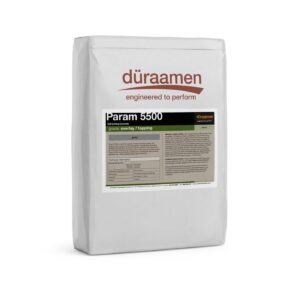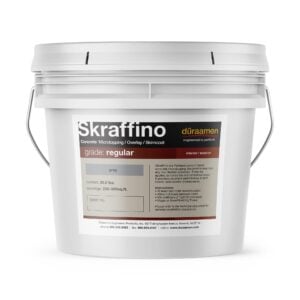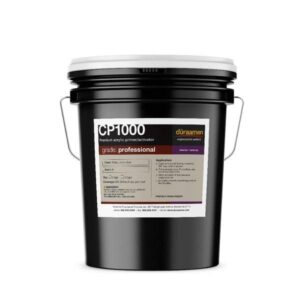When it comes to concrete projects, whether for industrial buildings, commercial applications, or even your garage floor, the importance of using the right products cannot be overstated. An often underestimated yet crucial component of many concrete coatings is the industrial epoxy primer. In this comprehensive guide, we will delve into the significance of epoxy primers in concrete projects, their various types, and why they are a fundamental part of the process.
The Role of Epoxy Primer
Epoxy primers play a vital role in concrete projects for numerous reasons. They serve as the foundation for the entire coating system, providing benefits that significantly impact the overall performance and longevity of the finished product. Here are some key reasons why epoxy primers are essential:
1. Superior Adhesion
One of the primary functions of an epoxy primer is to establish a strong bond between the concrete substrate and the subsequent coats, such as epoxy build coats, topcoats, or polyurethane coatings. This strong bond ensures that the coating system adheres securely to the surface, reducing the risk of delamination over time.
2. Improved Mechanical Bond
Epoxy primers not only provide excellent adhesion to the concrete but also create a better mechanical bond with subsequent coats. This bond enhances the overall durability and abrasion resistance of the entire system, making it suitable for high-traffic areas, heavy wear, and even vehicular traffic.
3. Surface Preparation
Proper surface preparation is crucial for the success of any concrete coating project. Epoxy primers help create a smooth surface by filling small surface imperfections, ensuring that the subsequent coats adhere uniformly to the concrete surface.
4. Reduction of Moisture Vapor Emission
In some cases, concrete substrates emit moisture vapor, which can negatively impact the adhesion and performance of coatings. Certain epoxy primers are formulated to reduce moisture vapor emission (MVE) levels, creating a moisture barrier that prevents issues associated with excessive moisture.
5. Enhanced Chemical Resistance
Epoxy primers often exhibit high resistance to chemical reactions, making them suitable for applications in industrial buildings and environments where exposure to chemicals and harsh substances is a concern.
6. Extended Pot Life
Epoxy primers have a long pot life, meaning they remain workable for an extended period after mixing. This provides ample time for application and helps prevent issues related to limited working time.
7. Compatibility with Various Topcoats
Epoxy primers are designed to be compatible with different products, such as epoxy floor coatings and polyurethane topcoats. This compatibility ensures that the entire coating system works seamlessly, delivering the intended performance and aesthetic qualities.
Types of Epoxy Primers
Epoxy primers come in various types, each designed to meet specific project requirements and conditions. Some of the most common types include:
1. Water-Based Epoxy Primers
Water-based epoxy primers are known for their low odor and low volatile organic compound (VOC) content. They are an excellent choice for applications where emissions need to be minimized, such as indoor projects or projects in close proximity to occupied spaces.
2. Solids Epoxy Primers
Solids epoxy primers have a high solids content and are formulated for their fast-drying properties. They are ideal for projects with time constraints, as they have a short dry time and cure rapidly.
3. Low Viscosity Epoxy Primers
Low viscosity epoxy primers are suitable for concrete surfaces that require deep penetration and excellent adhesion. These primers are often used on older concrete surfaces, ensuring a strong bond.
4. Two-Part Epoxy Floor Primers
Two-part epoxy primers typically consist of a Part A and Part B, which need to be mixed before application. They offer a robust bond and are commonly used in industrial applications and projects with heavy traffic.
The Right Primer for the Job
Selecting the right epoxy primer is critical for the success of your concrete project. Here are some factors to consider when choosing the appropriate primer:
1. Surface Temperature
Different epoxy primers have specific application temperature requirements. Ensure that the primer you choose is compatible with the current temperature conditions at your job site.
2. Application Area
Consider the specific application area. Is it indoors or outdoors? Is it exposed to direct sunlight? The environmental conditions can impact the choice of primer.
3. Epoxy Cures
The curing time of epoxy primers varies, so take into account the project schedule and the time available for the primer to cure before applying subsequent coats.
4. Covering Square Feet
Determine the square footage of the area to be coated. This will help you calculate the quantity of primer needed and avoid running out during the application process.
5. MVE Levels
If moisture vapor emission is a concern, opt for an epoxy primer designed to reduce MVE levels and create a moisture barrier.
6. Specific Information
Refer to the product data sheet and product label for specific information about the epoxy primer’s features, application instructions, and compatibility with other coatings.
7. Professional Installers
For larger projects or projects with complex requirements, it’s advisable to consult with professional installers or contractors. They have the expertise to select the right primer and ensure proper application.
The Impact of Epoxy Primer
In conclusion, the importance of epoxy primers in concrete projects cannot be overstated. These primers serve as the foundation for the entire coating system, providing superior adhesion, enhanced mechanical bond, and essential protection against moisture vapor emission.
Whether you’re working on a garage floor, industrial floor, or commercial application, selecting the right epoxy primer can make a significant impact on the overall performance and longevity of the coating system. It’s a crucial element that ensures your project not only looks good but also withstands the test of time in even the most hostile environments.
So, when you’re planning your next concrete project, make sure you give the choice of epoxy primer the careful consideration it deserves.






